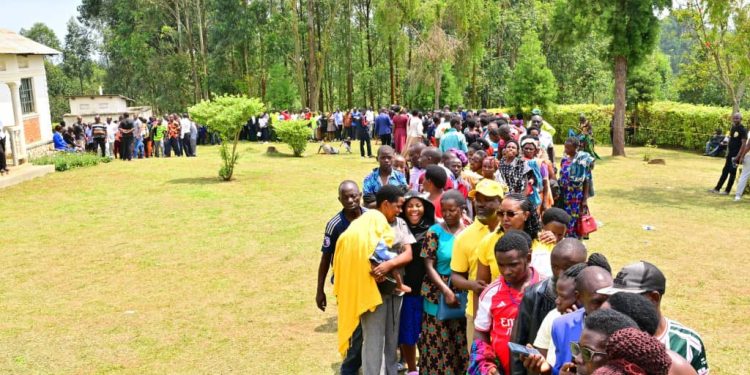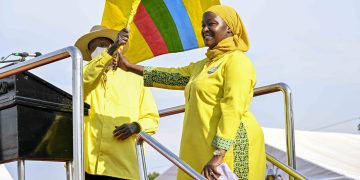The ruling National Resistance Movement (NRM) returns to the polls today in a second round of primary elections, this time targeting local government positions across the country.
Voters in all Ugandan villages are expected to line up behind their preferred candidates for district chairpersons, city and municipal mayors, and councillors at both district and city levels.
But this round of voting comes under intense scrutiny, following widespread violence, voter intimidation, and alleged electoral fraud that plagued the party’s parliamentary primaries just a week ago.
NRM Secretary General Richard Todwong, in a bid to avoid a repeat of the chaos, outlined a clear voting schedule and tighter guidelines ahead of today’s exercise.
“All eligible party members are required to convene at their respective village polling venues by 10 a.m.,” Todwong announced. “Names will be read aloud to confirm attendance against the NRM village register.”
Voting is scheduled to take place between 12 noon and 2 p.m., using the NRM’s signature “lining up” method—a public queuing system where members physically stand behind their chosen candidate or the candidate’s agent.
This system, while cost-effective, has often drawn criticism for its potential to expose voter preferences and incite conflict.
Todwong emphasized that only registered NRM members will be allowed to vote, and that proxy voting is strictly prohibited a move intended to prevent manipulation and impersonation.
After voting, presiding officers will publicly declare the results and issue official Declaration of Results forms, which must be signed by all agents present.
Each candidate’s agent is also entitled to a copy of the result, with final tallying and result confirmation taking place at the district level.
Today’s vote is being closely watched, as the NRM attempts to salvage the image of its internal electoral process following the July 17 parliamentary primaries, which descended into mayhem in several regions. That earlier exercise saw hundreds arrested, according to police, and sparked accusations of ballot tampering, voter bribery, and physical assault.
Despite heavy security deployments during the last vote, pockets of violence still erupted, particularly in rural districts, even as urban centres like Kampala, Wakiso, Mbale, Soroti, and Mbarara remained largely calm.
The Uganda Police Force, in coordination with other security agencies, has once again deployed nationwide in anticipation of possible unrest. Officials say they are prepared to respond swiftly to any threats to the integrity or safety of the electoral process.





















